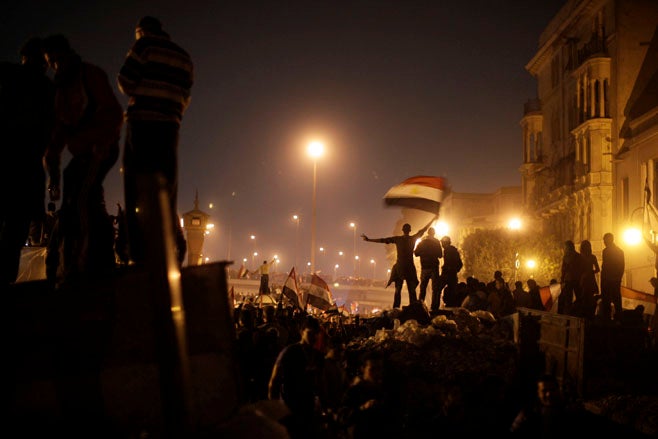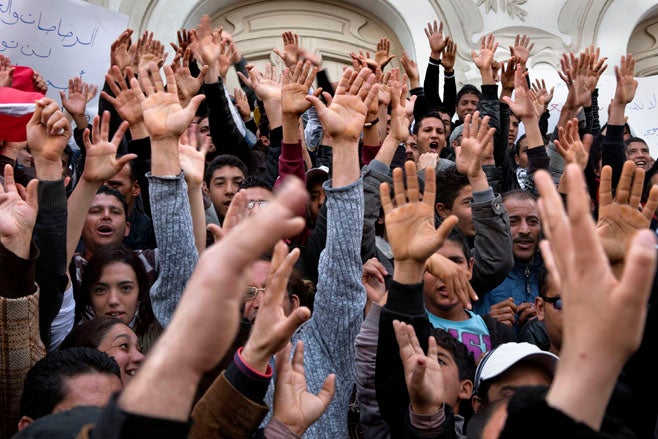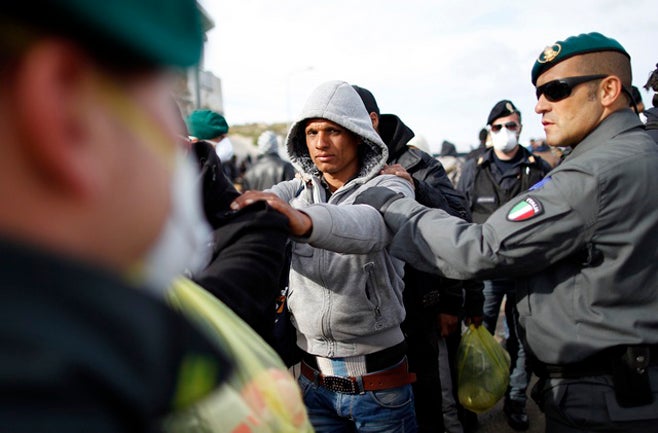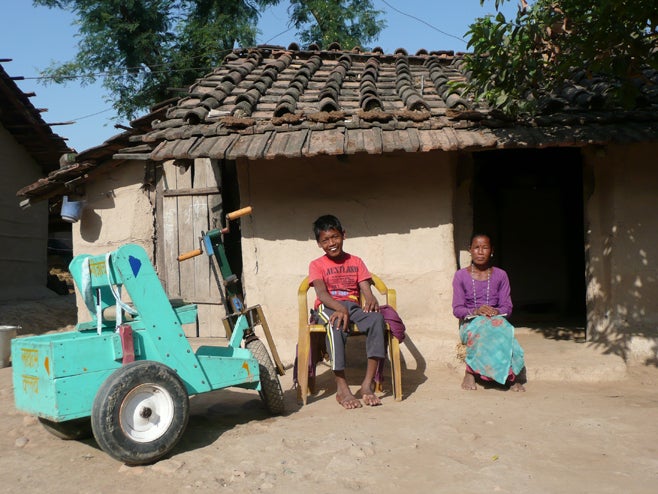Human rights conditions in Iraq remained extremely poor, especially for journalists, detainees, and opposition activists. In part inspired by peaceful uprisings elsewhere in the region, thousands of Iraqis demonstrated in the streets to demand better services and an end to corruption. Security forces and gangs responded with violence and threats.
Reports continued of torture of detainees unlawfully held outside the custody of the Justice Ministry. In late June or early July United States forces handed over the last of the 192 detainees in Iraq who were still under US control at the end of 2010, including some former members of Saddam Hussein's government. Attacks by armed groups killed hundreds of civilians as well as police. The US continued to withdraw troops as part of a 2008 agreement that calls for a complete US withdrawal by the end of 2011.
Freedom of Assembly
After thousands took to the streets in February to protest widespread corruption and demand greater civil and political rights, federal Iraqi authorities and Kurdistan Regional Government (KRG) authorities both responded with violence.
On February 21, Iraqi police stood by as dozens of assailants, some wielding knives and clubs, stabbed and beat at least 20 protesters intending to camp in Tahrir Square in Baghdad, the capital. During nationwide demonstrations on February 25, security forces killed at least 12 protesters across the country and injured more than 100. Baghdad security forces beat unarmed journalists and protesters that day, smashing cameras and confiscating memory cards.
Anti-government protests started in Kurdistan on February 17. At this writing security forces had killed at least 10 protesters and bystanders and injured more than 250.On March 6, masked assailants attacked demonstrators in Sara Square—the center of daily protests in Sulaimaniya—and set the demonstrators’ tents on fire, but failed to evict the demonstrators from the site. On April 18, security forces seized control of Sara Square to prevent further demonstrations. On April 27 the KRG released a 19-page report that determined that both security forces and protesters were responsible for violence, and that security forces “were not prepared to control the situation.”
On June 10 in Baghdad government-backed thugs armed with wooden planks, knives, iron pipes, and other weapons beat and stabbed peaceful protesters and sexually molested female demonstrators as security forces stood by and watched, sometimes laughing at the victims.
Authorities also used legal means to curtail protests. On April 13, Iraqi officials issued new regulations barring street protests and allowing them only at three soccer (football) stadiums, although they have not enforced the regulations. In May the Council of Ministers approved a "Law on the Freedom of Expression of Opinion, Assembly, and Peaceful Demonstration" that authorizes officials to restrict freedom of assembly to protect "the public interest" and in the interest of "general order or public morals." At this writing the law still awaited parliamentary approval.
Freedom of Expression
In 2011 Iraq remained one of the most dangerous countries in the world to work as a journalist. Armed groups and unknown assailants killed at least five journalists and one media worker, according to the New York-based Committee to Protect Journalists. Journalists also contended with emboldened Iraqi and KRG security forces.
On February 20, dozens of masked men attacked the private Nalia Radio and Television (NRT) station in Sulaimaniya. They shot up broadcasting equipment and wounded one guard. They then doused the premises with gasoline and set fire to the building, according to the station's staff. NRT had begun its inaugural broadcasts of footage of the protests only two days before the attack.
On February 23 security forces in Baghdad raided the office of the Journalistic Freedoms Observatory, a press freedom group. Their destructive search lasted more than an hour and they seized computers, external hard drives, cameras, cell phones, computer disks, and documents as well as flak jackets and helmets marked “Press.”
More than 20 journalists covering protests in Kurdistan said that security forces and their proxies routinely threatened journalists, subjected them to arbitrary arrest, beatings, and harassment, and confiscated or destroyed their equipment. After quashing the daily protests in Sulaimaniya in April, KRG officials and security forces expanded their suppression of journalists through libel suits, beatings, detentions, and death threats. The threat of attacks and arrests sent some journalists into hiding.
On September 8 an unknown assailant shot to death Hadi al-Mahdi, a popular radio journalist often critical of government corruption and social inequality, at his Baghdad home. The Ministry of Interior said it would investigate his death, but at this writing no one had been charged. Immediately prior to his death al-Mahdi received several phone and text message threats not to return to Tahrir Square. Earlier, after attending the February 25 “Day of Anger” mass demonstration in Baghdad, security forces arrested, blindfolded, and severely beat him along with three other journalists during their subsequent interrogation.
In April Iraq’s parliament approved a Journalists’ Protection Law, intended to protect media workers and compensate them for injuries sustained while working. Critics say the law does not do enough to ensure proper protections for journalists.
In May the Council of Ministers approved adraft of the “Law on Freedom of Expression of Opinion, Assembly, and Peaceful Demonstration,” which contains provisions that would criminalize speech, with penalties of up to 10 years in prison. Under article 13, anyone who “attacks a belief of any religious sect or shows contempt for its rites”, or publicly insults a “symbol, or person who is held sacred, exalted, or venerated by a religious sect” would face up to one year in jail and fines of up to 10 million Iraqi dinars (US$8,600). The law provides no guidance about what might constitute an unlawful insult.
Secret Prisons and Torture
In February Human Rights Watch uncovered, within the Camp Justice military base in Baghdad, a secret detention facility controlled by elite security forces who report to the military office of Prime Minister Nuri al-Maliki. Beginning on November 23, 2010, Iraqi authorities transferred more than 280 detainees to the facility, which was controlled by the Army's 56th Brigade and the Counter-Terrorism Service.
The same elite divisions controlled Camp Honor, a separate facility in Baghdad where detainees were tortured with impunity. More than a dozen former Camp Honor detainees told Human Rights Watch how detainees were held incommunicado and in inhumane conditions, many for months at a time. Detainees said interrogators beat them; hung them upside down for hours at a time; administered electric shocks to various body parts, including the genitals; and repeatedly put plastic bags over their heads until they passed out from asphyxiation. On March 14 the Justice Ministry announced that it would close Camp Honor after a parliamentary investigative committee found evidence of torture during a spot inspection of the facility. Human Rights Watch has since received credible information that elite forces may still hold and interrogate detainees at Camp Honor.
At this writing the authorities had not prosecuted any officials responsible for torture at Camp Honor.
Women’s and Girls’ Rights and Gender-Based Violence
Iraq adjudicates family law and personal status matters pursuant to a 1959 Personal Status Code. The law discriminates against women by granting men privileged status in matters of divorce and inheritance.The law further discriminates against women by permitting Iraqi men to have as many as four polygamous marriages.
On October 6 Iraq’s parliament passed legislation to lift Iraq’s reservation to article 9 of the Convention on the Elimination of All Forms of Discrimination against Women. Article 9 grants women equal rights with men to acquire, change, or retain their nationality and pass on their nationality to their children.
Violence against women and girls continued to be a serious problem across Iraq. Women's rights activists said they remained at risk of attack from extremists, who also targeted female politicians, civil servants, and journalists. “Honor” crimes and domestic abuse remained a threat to women and girls, who were also vulnerable to trafficking for sexual exploitation and forced prostitution due to insecurity, displacement, financial hardship, social disintegration, and the dissolution of rule of law and state authority.
Female genital mutilation (FGM) is practiced mainly in Kurdish areas of northern Iraq and several official and non-governmental studies estimate that the prevalence of FGM among girls and women in Kurdistan is at least 40 percent. On June 21 Kurdistan’s parliament passed the Family Violence Bill, which includes several provisions criminalizing the practice, as well as forced and child marriages, and verbal, physical, and psychological abuse of girls and women.
Attacks on Civilians
Attacks by armed groups killed hundreds of civilians and security forces. Assailants targeted provincial councils and government officials, checkpoints, markets, and mosques. In one of the worst attacks, a string of over 40 coordinated assaults in 17 cities on August 15 killed more than 90 people, including many unarmed civilians and members of the security forces.
The ongoing attacks, along with injuries from abandoned landmines and cluster munitions, have created a disproportionately high number of persons with physical and mental disabilities, many of whom have not received rehabilitation or support for re-integration into their communities. On August 17 Iraq's parliament held a second reading of a resolution to ratify the Convention on the Rights of Persons with Disabilities (CRPD). Two draft disability laws under consideration would create a national body to oversee disability issues. But the proposed laws have several deficiencies including language that is incompatible with the CRPD.
Key International Actors
The European Court of Human Rights issued two landmark judgments on July 7, 2011, which ruled that the United Kingdom’s human rights obligations apply to British acts in Iraq, and that the UK had violated the European Convention on Human Rights by failing to adequately investigate the killings of five Iraqis by its forces there, and that its internment of Iraqis had amounted to arbitrary detention.
On September 8 a three-year UK inquiry into the death of Baha Mousa, a hotel receptionist who died in British custody following serious abuse by British soldiers, condemned inadequate detention procedures, leadership failures, poor training, a loss of discipline, and a lack of “moral courage” among soldiers to report abuse. Only one British soldier was convicted of any crime in connection with this killing, and he was sentenced to only one year in prison.
In September Wikileaks released thousands of classified cables from the US embassy in Baghdad, one of which called into question the results of a US military investigation of a 2006 incident in which US soldiers may have handcuffed and executed at least 10 Iraqi civilians.
In July the United Nations Security Council voted to extend the mandate of the UN Assistance Mission for Iraq (UNAMI) for another year. UNAMI’s 2010 Report on Human Rights in Iraq, released in August 2011, found that “significant problems remain with law enforcement and the administration of justice, especially in relation to the provision and respect for due process and fair trial rights,” and that “incidents of abuse and torture remain widely reported.”






